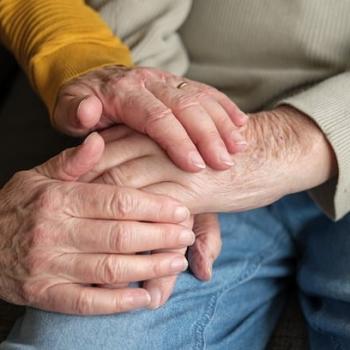That's a great way to put it, and let me expand on that point. I can give you another example of shoving the care of poor patients away in one area but not preparing an overall space for them.
Some people who have insurance, when they hear these conversations, tune out. They think it doesn't affect them. But it really does. If we're caring for patients who cannot pay for themselves, then we have to subsidize their care by charging more from those who have insurance. It's a little more complicated than this, but to simplify, we require those with insurance to pay more in order to keep hospitals afloat while they also care for those without insurance.
If you look at your own premium, wherever you're insured, I can bet that it's been increasing at an astronomic rate. You may not realize it, because your employer takes more of the hit. But I guarantee you it's been increasing.
So this problem does affect all of us. The mess eventually overflows. One of the things I want to emphasize is, when we think about poor people who have no access to emergency departments, the problem affects not only the emergency rooms in the poorer neighborhoods that are closing. It does affect you, because now those people are going to come to the emergency department in your neighborhood. Health care is not a closed system, where poor or uninsured people stay in their own neighborhoods.
Can you say more about how the overflowing mess affects my individual health care?
Imagine that a person from a poorer neighborhood is shot, and you have a broken leg, and both of you are brought to the same emergency room. You'll wait longer because the trauma gets priority over you. It affects you in that you wait longer, and we also know from other research that when you wait longer for certain time-sensitive conditions—if you have a heart attack, for instance, or if your blood or lungs are infected with bacteria—then the amount of time you wait for treatment is extremely important for mortality rates. Those are compelling reasons to address this issue.
What then would it look like to address the issue? What's the answer? Do we need to build more emergency rooms? Or is the solution more complex?
You absolutely have to look at the whole health care system. There are some places where they used to think it was just an emergency room problem, and they tried to increase the number of beds and doctors. But if you have patients stuck in the emergency room, you're not able to move them, so it becomes a hospital-wide systemic problem. Changes need to be made at a hospital level.
On a larger scale, looking at the whole health care system, we need to consider how we finance and deliver care to patients. Right now the scaffolding of health care is set up in a way that really does produce inequity. So while people are scared to look at wholesale health care reform, that's what it's going to take or else the problem will grow worse.
What's your take on the Obama health care reform, then? Does this address the kind of systemic issues you're talking about?
I think Obamacare is a step in the right direction. More needs to be done. But obviously in a democratic society like ours, it's difficult to get a whole new system pushed through Congress in a way that others will accept. So this I think is a step in the right direction, but much more needs to be done.
Imagine you're sitting next to a member of the Tea Party on a plane. Obama's reforms were a primary rallying point for the Tea Party; it was viewed as a symbol of federal government overreach and intrusion into private life. As a physician, how would you explain to such a person what sounds like your support for the Obama administration reforms?
I would share my own experience, what I'm seeing in the ER. One of the reasons I love working in the emergency room is because it gives you a bird's-eye view of the health care system.
To give one example, a patient last month had had a pacemaker replaced five or six years ago, but he lost his insurance so he wasn't getting follow-up. It was a very simple problem. The battery in his pacemaker was dying, and so his heart rate was growing slower and slower. When he came into the ER, his heart rate was at about 35-40 beats per minute, which is almost unsustainable. He had been feeling bad for months. Now, he didn't know exactly what the problem was, but without insurance he was unable to pay out-of-pocket to see a cardiologist.
He discussed this with his neighbor, who was a cardiologist. His neighbor took his pulse and told him to go to the ER immediately.
It's a simple problem. He needs a battery in the machine that has been placed in his heart. Because he didn't have insurance, he could have died. Those kinds of things should never happen. But these are the kinds of things we see in the ER, and it's sad.




